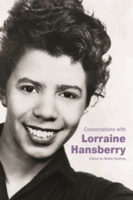
The University Press of Mississippi was founded in 1970 and is supported by Mississippi's eight state universities. UPM publishes scholarly books of the highest distinction and books that interpret the South and its culture to the nation and the world. From its offices in Jackson, the University Press of Mississippi acquires, edits, distributes, and promotes more than eighty new books every year. Over the years, the Press has published more than 1000 titles and distributed more than 2,600,000 copies worldwide, each with the Mississippi imprint.
Racial Terrorism
A Rhetorical Investigation of Lynching
How the Equal Justice Initiative, the Legacy Museum, and the National Memorial for Peace and Justice confront racial violence in America
Queer Anxieties of Young Adult Literature and Culture
A new perspective on an explosively popular subgenre of young adult media
New York and the International Sound of Latin Music, 1940-1990
An assessment, celebration, and careful notation of the extraordinary melting pot of Latin music
Kasi Lemmons
Interviews
Fifteen interviews that illuminate Lemmons’s distinctive ability to challenge social expectations through film and actualize stories that broaden expectations of cinematic Black femaleness and maleness
Conversations with Lorraine Hansberry
The first volume to collect all of Hansberry’s substantive interviews in one place, including many radio and television interviews that have never before appeared in print
Conversations with Dana Gioia
The first collection of interviews with the internationally known poet and public intellectual
Breaking the Blockade
The Bahamas during the Civil War
A book-length study of the often unexplored great carnival of the Civil War
The Nightcrawler King
Memoirs of an Art Museum Curator
A moving and fun account of the man who influenced fifty years of growth at the New Orleans Museum of Art
Can't Nobody Do Me Like Jesus!
Photographs from the Sacred Steel Community
A powerful witness of the electric steel guitar tuned to worship the Lord
Rediasporization
African-Guyanese Kweh-Kweh
The astonishing transformation of an African tradition that distinguishes a second American Guyanese diasporization










